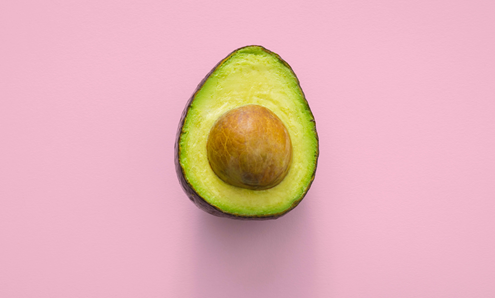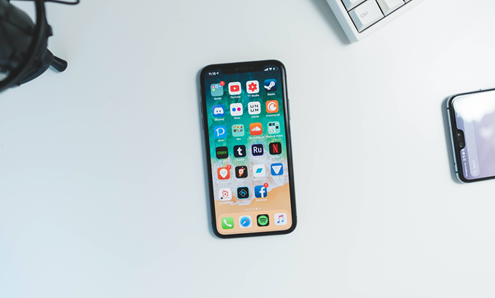Whether you’re killing it in the business world or not, evolving your company is paramount to your success because the market’s constantly changing - whatever industry you’re in. So, whether it’s what you sell, how you sell it or the way you position yourself, to stay competitive, you’ve got to move with it.
Need a bit of inspiration? Here are five big brands who’ve shown us all how it’s done.
1. Netflix
Netflix might be the in thing to do now but it hasn’t always been that way - and it certainly didn’t used to be as easy as logging into your phone, tablet or desktop and firing up their app/website.
When Netflix launched back in 1998 it was actually a DVD rental and sales site, and it took 12 months for them to introduce their first subscription service. When they did though, users could rent and watch as many DVDs as they liked for a set fee and receive them all by mail.
Fast forward to 2007 and the company made possibly its smartest move to-date; they turned their model into an online streaming set-up. They knew online was where it was all heading, they adapted their product to suit their customers’ needs, and it worked.
For any investment buffs out there this’ll put it into financial context: at the beginning of 2007 Netflix’s stock was trading at $3.80... in September 2017, it closed at $97.38.
2. Amazon
Nowadays you can find everything from hair clips and computers to cutlery and cars on Amazon, but the company was a shell of its former self 20+ years ago.
Starting out as an online book retailer, it was actually pretty revolutionary at the time and the idea was, and still is, super practical - most of us would prefer to order something from the comfort of our own homes than traipse to a physical store, after all.
However, the CEO, Jeff Bezos, decided he needed to expand his net and sell more than just books, so, in 1996, he introduced an affiliate programme to broaden his customer base - and it worked.
Selling almost anything anyone could possibly want with a one-click shopping method, Amazon’s now one of the most well-known brands in the world and turns over billions of pounds every year.
If only we could go back 20 years and have the same brainwave, hey?
3. McDonald’s
There aren’t many corners of the world that don’t house a McDonald’s. However, when the book “Fast Food Nation: The Dark Side of the All-American Meal” was released in 2001 it threw the company into the spotlight - and for all the wrong reasons.
According to the author (Rob Walker) himself, the aim of the book was to “force readers to stop and consider the consequences of McDonald’s and its ilk having become inescapable features of the American (and, increasingly, global) landscape”.
Now there’s no way of knowing whether the book had a direct or indirect impact on the chain’s reputation and finances, but what we do know is two years’ after its release, McDonald’s reported its first quarterly loss in 38 years.
Anyway, McDonald’s has since added lots of healthy options to their menus (like salads, low-fat and fat-free milk, fruit and wraps) and make all their nutritional values available for everyone to see.
The result? It’s no longer seen as just a junk food joint but a health-conscious brand too.
4. Lego
Lego’s been around since 1932 and although it’s seen lots of highs (in 2014 it was the number one toy company in the world), it’s seen its fair share of lows too.
According to Fast Company’s 2015 “How Lego Became the Apple of Toys” article, the business came close to bankruptcy 10 years’ prior with video games and the internet threatening its very existence.
Seen as “old-fashioned” by some, Lego needed to do something to put itself back on the map and show people it was very much still a go-to toy. And it did.
In 2011 it launched its Lego Friends line in a bid to appeal to girls and bin off the ‘boys only’ stereotype, a few years later (2014) they released “The Lego Movie”, and, to this day, they piggyback onto big names like Star Wars, Friends, Harry Potter and Marvel Superheroes to add another dimension to their offering and remain contemporary.
Combined, their efforts transformed Lego into a franchise - not just a toy.
5. Apple
Another global name that once faced bankruptcy. In the late ‘90s Apple was in trouble until one of their biggest competitors - Microsoft - saved the day by investing $150 million.
Before Microsoft’s cash injection Apple was worth less than $3 billion. However, the investment enabled them to shift their technology space and after the transformation, they were valued at a whopping £154.1 billion.
Although some people attribute Apple’s current global position to Microsoft’s help all those years ago, credit where credit’s due, they did their bit to reinvent themselves too. They moved away from being seen as just a Mac maker by introducing iPhones, iPads and iPods and, safe to say, raised their product suite to a whole new level.
Looking to reinvent yourself?
Sometimes small changes make all the difference and making your payment processes easier could be that first step. From card machines, online payments and EPOS systems, if you want to move to card payments, we’re your partners.
Get in touch with the team on 0808 274 2017 to see how we can reinvent your payments.





